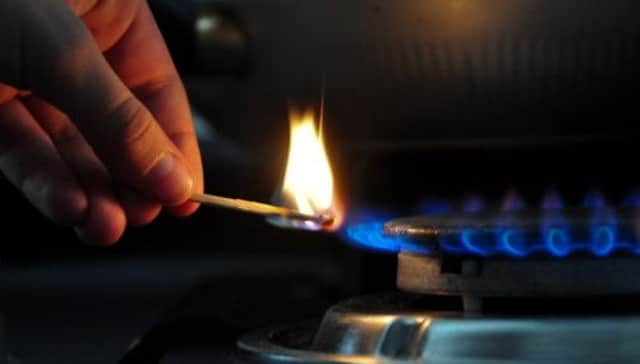Dealing with Britain’s broken energy market


Consumers are telling us that this is one of their major financial concerns: 81 per cent of people in Scotland, in our latest consumer research, said they are worried about the price of energy, more than the UK average.
Which? has been campaigning for simple pricing to help people easily identify the cheapest energy deal, as well as helping people swap suppliers and save money through Which? Switch: www.which.co.uk/switch/
Advertisement
Hide AdAdvertisement
Hide AdHowever, with rumours of another round of price hikes this winter, making sense of the market remains far from easy.
While energy companies blame price rises on an increase in wholesale costs, which make up 60 per cent of bills, or on government policies, while at the same time announcing huge profits, public trust in this industry is shamefully low. Which? research shows just a quarter of Scottish people trust their gas or electricity supplier.
The truth is that it is almost impossible to establish whether the price we are paying for our energy is a fair one. For many years, a lack of transparency has meant we could not establish whether price hikes are always a fair reflection of wholesale costs, or confirm whether the way the market operates ensures that retail prices are being kept in check by competition between suppliers. Consumers are being left to take it on good faith alone that their interests are being well served.
‘Vertically integrated’
Part of the problem is that the largest six energy suppliers in the UK are “vertically integrated”, meaning their energy generation arm is able to sell to their domestic supply side, behind closed doors, with little transparency. Because these six energy companies supply 98 per cent of the domestic market and generate 70 per cent of electricity, very little electricity has to be sold on the “open” wholesale markets.
This lack of openness and external scrutiny means it is almost impossible for anyone looking in from the outside to obtain robust price information.
The very structure of the largest companies, the low levels of trading and competition on the open market and the closed nature of trading and price setting could be adversely impacting on the competitiveness of the market and on prices.
To tackle this, Which? has proposed that domestic supply is separated, effectively ring-fenced, from generation in these vertically integrated companies.
On top of this, much more needs to be done to give consumers confidence that the price we are all paying to clean up our power supplies is also being kept in check. While we support tackling climate change, and recognise that Scotland has been a real pioneer in clean technologies such as marine power, the lack of transparency and scrutiny in wholesale markets is mirrored in a worryingly large chunk of the UK government’s plans to meet its carbon reduction and renewable energy targets.
Costs
Advertisement
Hide AdAdvertisement
Hide AdConsumers are essentially being taxed – albeit mainly via their bills – to pay for this decarbonisation. So everything possible should be done to keep costs down, to make sure they are passed on fairly and to explain to consumers how their money is being spent.
Which? is calling for the UK government to put in place better processes and policies to improve transparency and to ensure that decarbonisation is affordable for all consumers. This must get the same scrutiny as any other public spending and we want the National Audit Office to take responsibility for the scrutiny of all decarbonisation policy costs in the round.
As it stands, the energy market is broken.
The regulator has taken steps to make changes but we don’t think these go far enough. It’s time for the UK government to step in.
Simple pricing, separating supply from generation and much more transparency and scrutiny will help to increase trust and ultimately improve competition by helping consumers find the best deal for them.
• Richard Lloyd is executive director of Which? www.which.co.uk